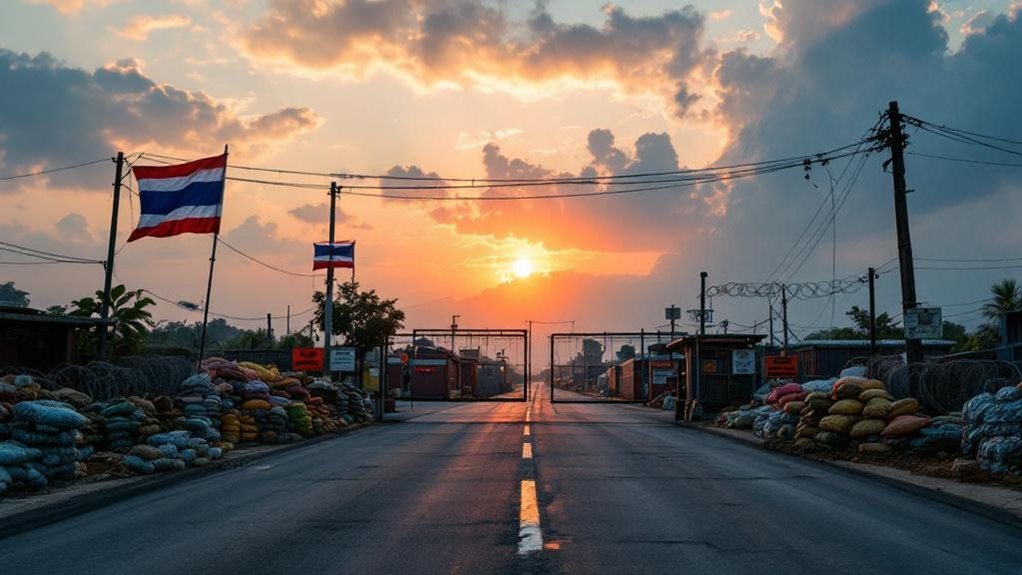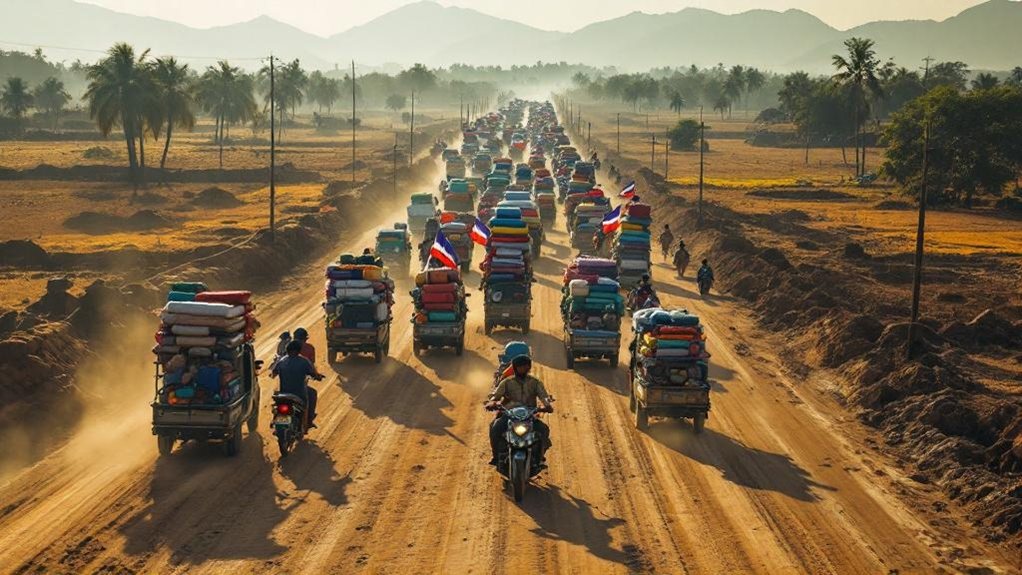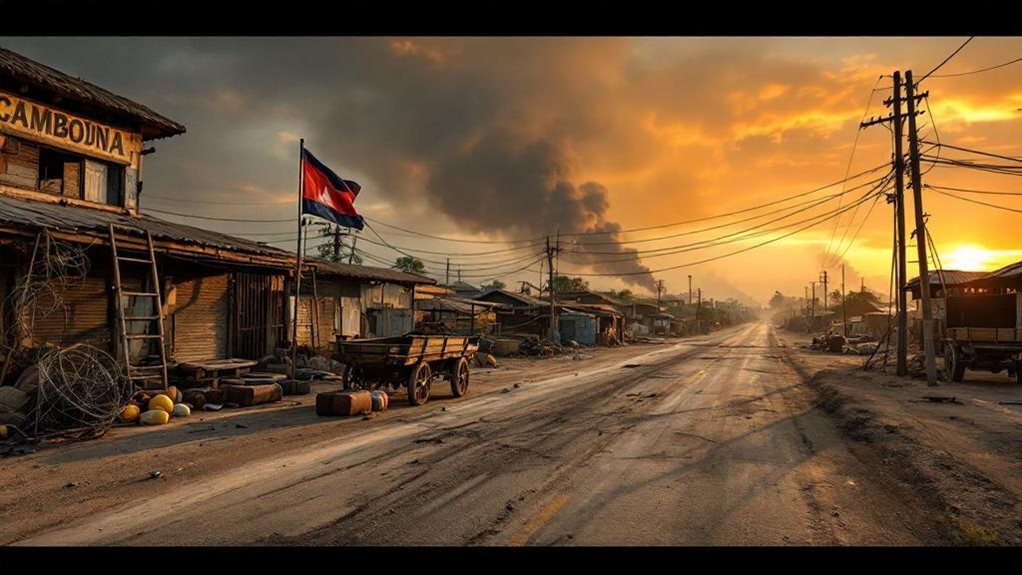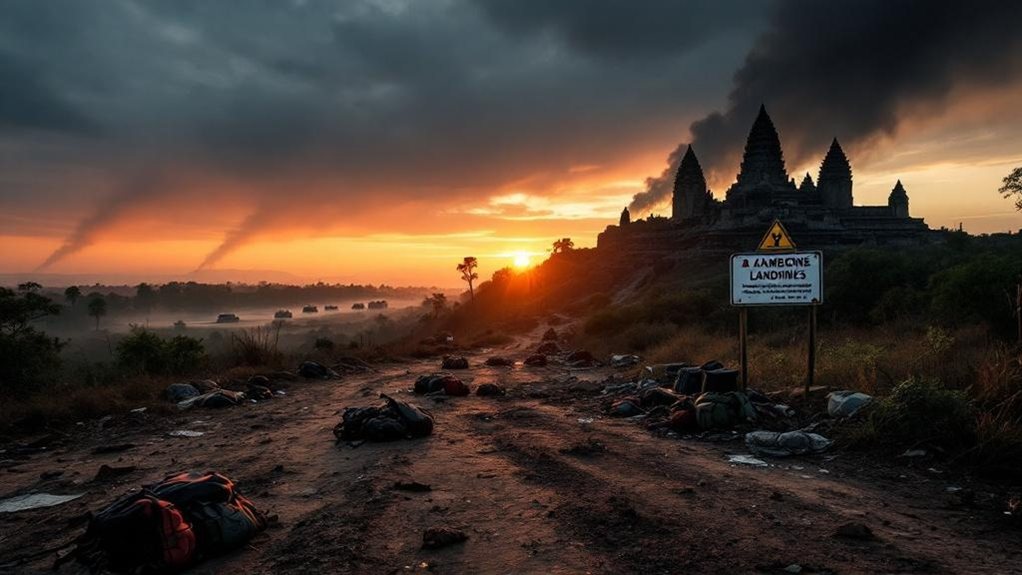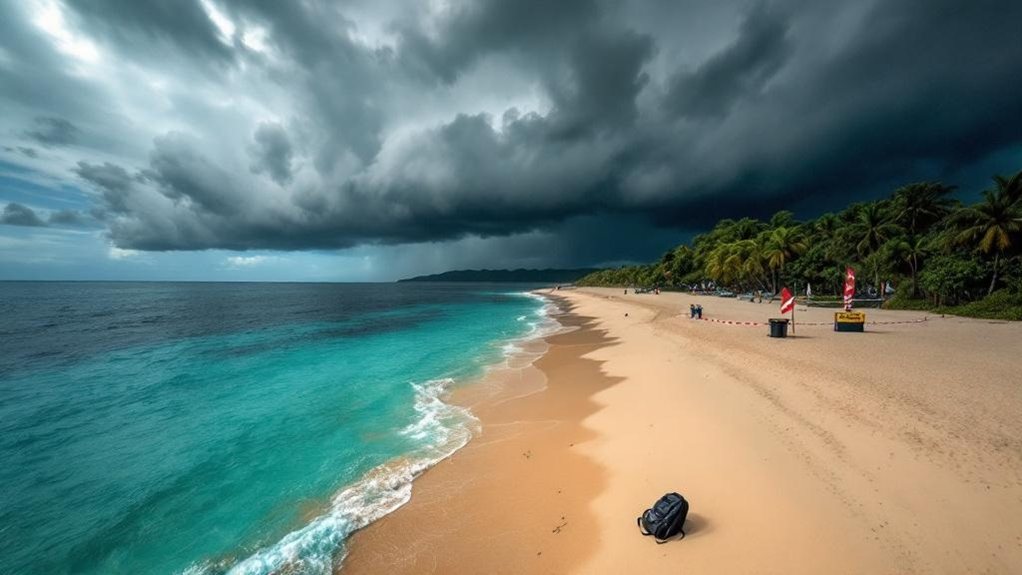US President Donald Trump has suspended trade negotiations with Thailand and Cambodia due to escalating border violence between the two nations. The conflict, involving military clashes in five areas along the Thai-Cambodian border, has led to at least 34 fatalities and over 168,000 displaced individuals. Trade talks will remain halted until a ceasefire is established. Currently, the United States maintains a 36% tariff rate on Thai imports, highlighting the economic implications of the continued hostilities. Discover the diplomatic efforts underway in this tense situation.
In a decisive move, US President Donald Trump has suspended trade negotiations with Thailand and Cambodia due to an escalating border conflict between the two nations. This suspension will remain in place until both countries agree to a ceasefire along their shared border. The decision follows an unsuccessful attempt by the UN Security Council to demand a ceasefire, which highlighted the need for more direct intervention. The ongoing military clashes reported in five areas along the Thai-Cambodian border have raised doubts about conflict resolution. The conflict’s escalation has resulted in at least 34 people killed and over 168,000 displaced, underscoring the urgent need for a ceasefire.
Final tariff proposals from Thailand had been submitted to the US, but with negotiations on hold, the current US tariff rates on Thai imports remain at 36%, while Cambodia’s rate, recently reduced from 49% to 36%, also stays unchanged.
US tariff rates on Thai and Cambodian imports remain at 36% amid suspended trade talks.
President Trump reached out directly to Cambodian Prime Minister Hun Manet and acting Thai Prime Minister Phumtham Wechayachai, urging them to engage in peace talks before any resumption of trade discussions. Deputy Foreign Minister Prak Sokhonn has been tasked with coordinating with US Secretary of State Marco Rubio to engage the foreign ministers of both countries.
Secretary Rubio emphasized the need for immediate de-escalation and expressed the US’s readiness to facilitate talks aimed at restoring stability. The US underscored the direct link between peace along the border and economic cooperation, though ongoing clashes have exposed the fragility of ceasefire efforts.
Thailand faced a critical deadline of August 1 to finalize trade agreement details with the US, and the suspension now means that Thailand may have to accept the existing US tariff rates temporarily. This delay poses a threat to Thailand’s economic interests, particularly those tied to reduced tariffs and expanded market access.
Trade advocates in Thailand have expressed concern over the loss of momentum due to the halted negotiations, which directly disrupts economic diplomacy and planned trade benefits.
The conflict itself intensified after a land mine explosion injured five Thai soldiers, with both countries blaming each other for the renewed clashes. Thailand has since closed its border crossings with Cambodia amid the hostilities, which have seen artillery and rocket attacks target areas such as Surin province and the disputed Ta Muen Thom temple area.
The US’s suspension of trade negotiations serves as a strategic use of economic leverage to influence conflict resolution, highlighting the interconnectedness of political, military, and economic dynamics in international relations.
